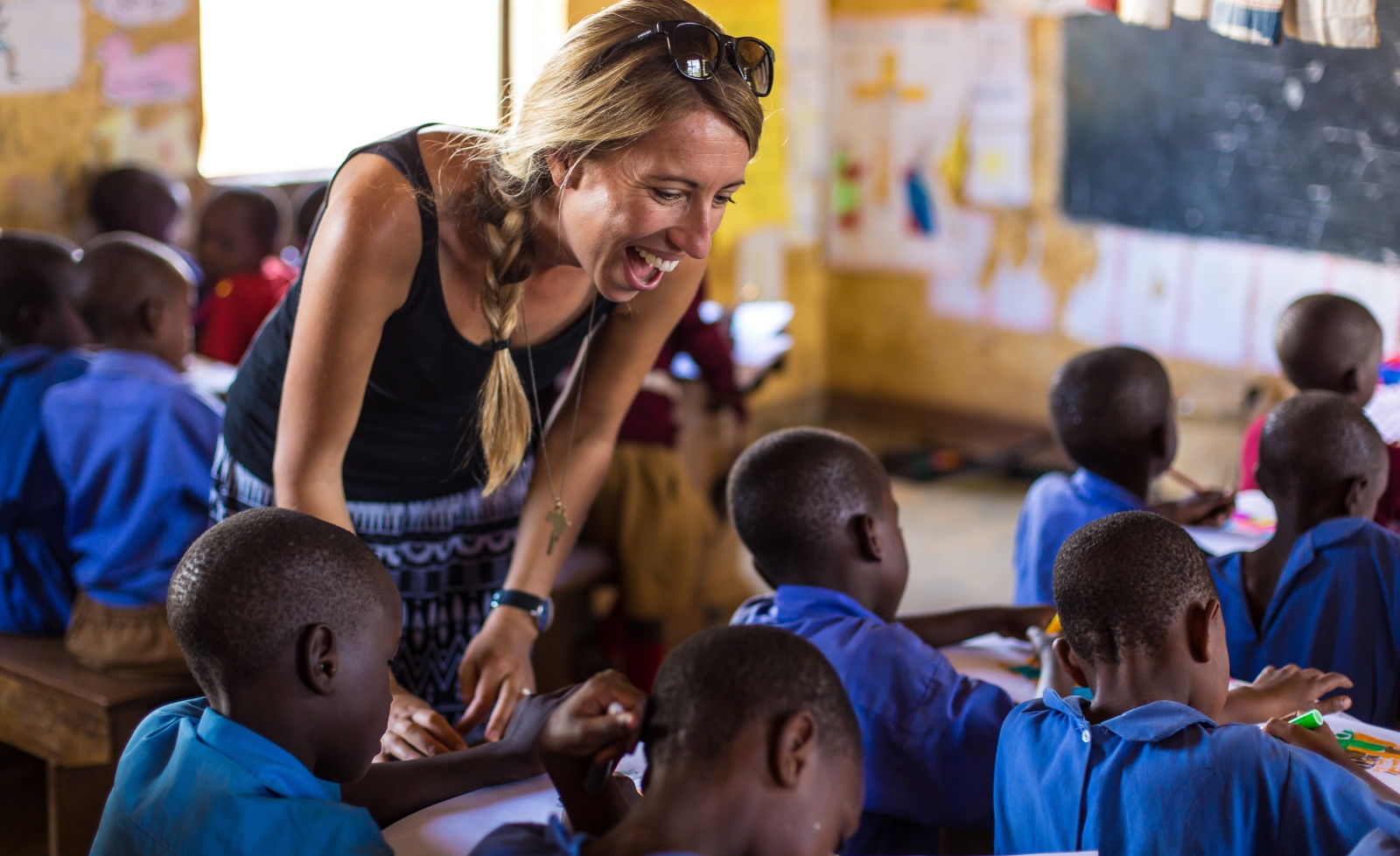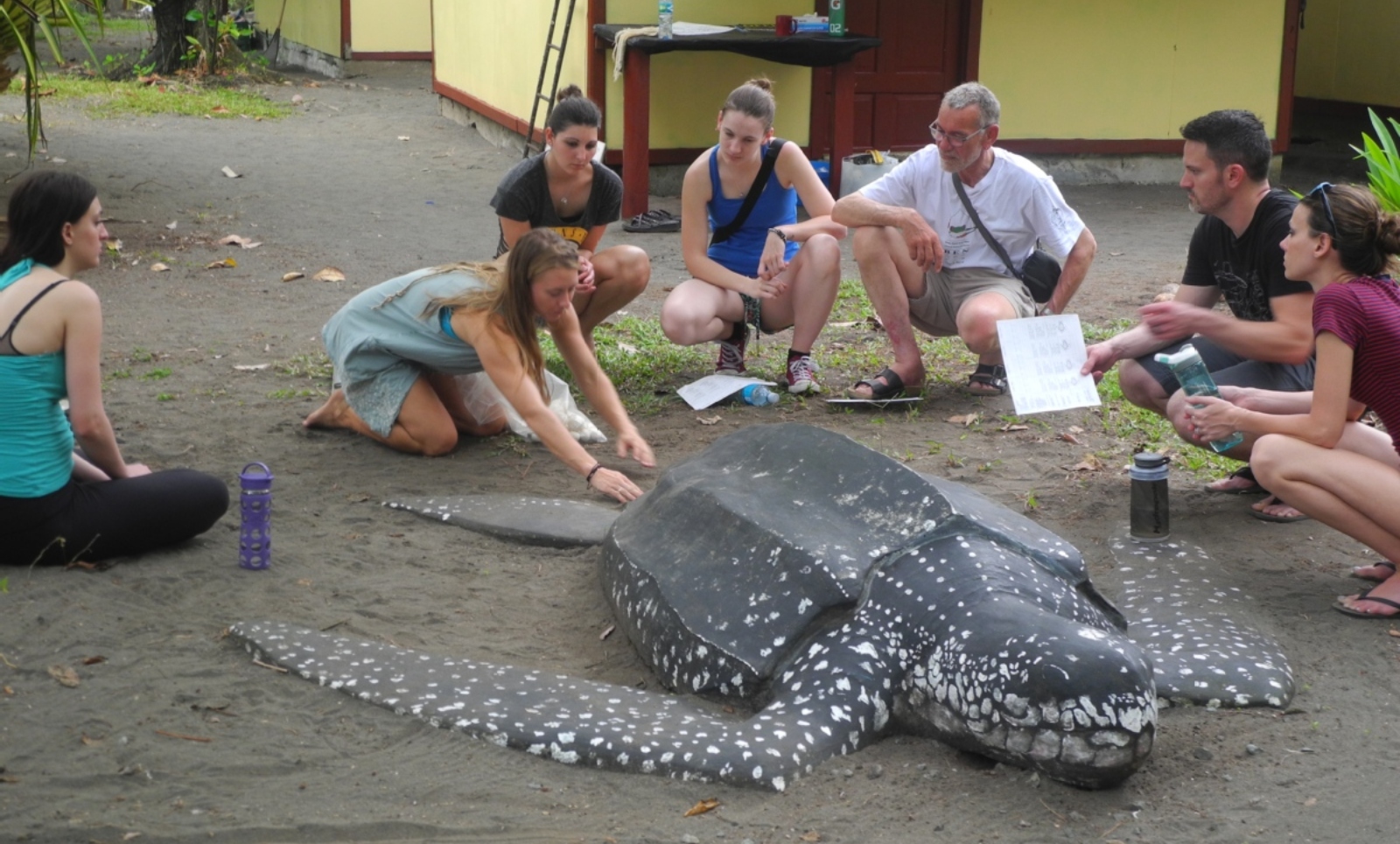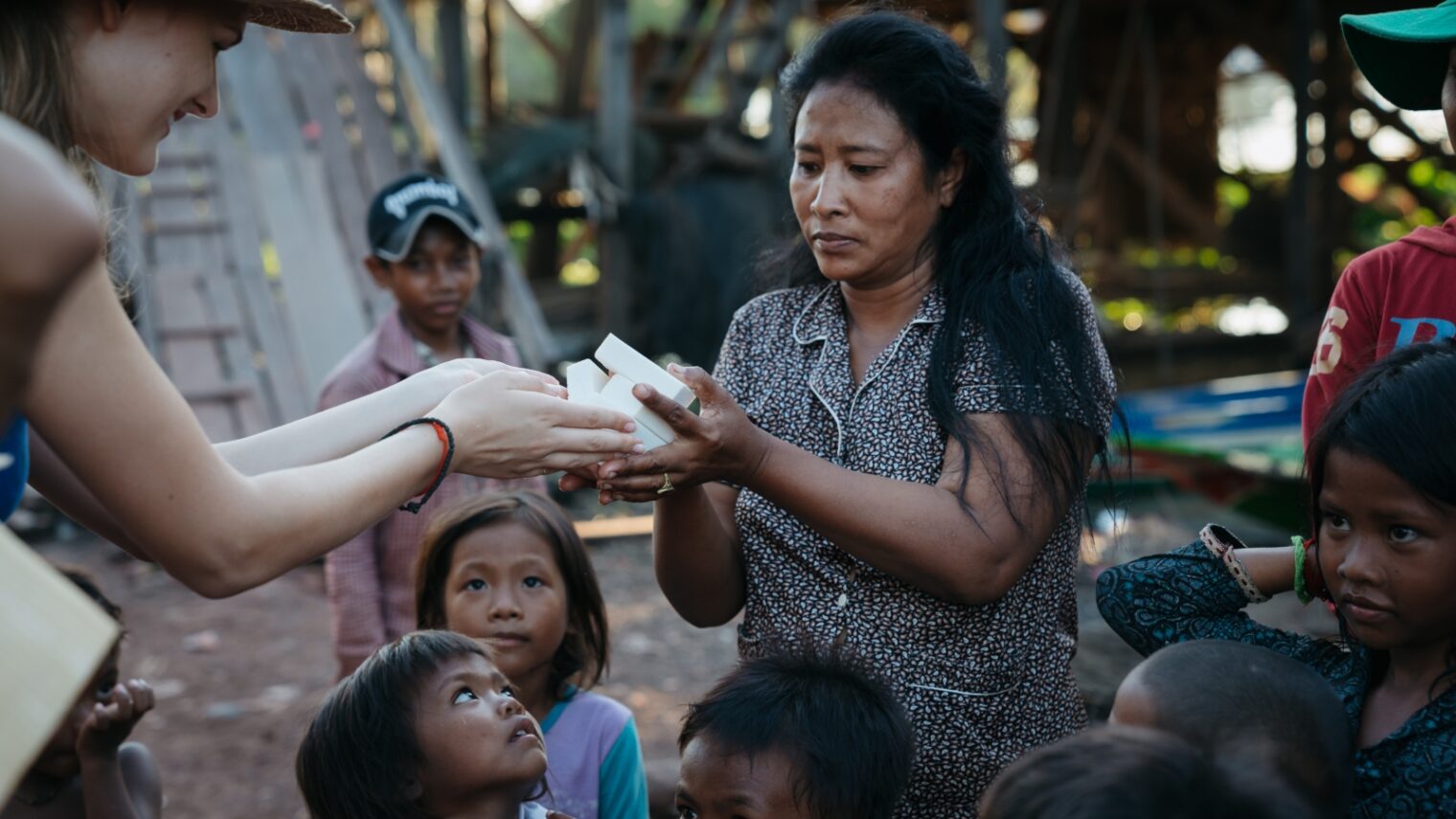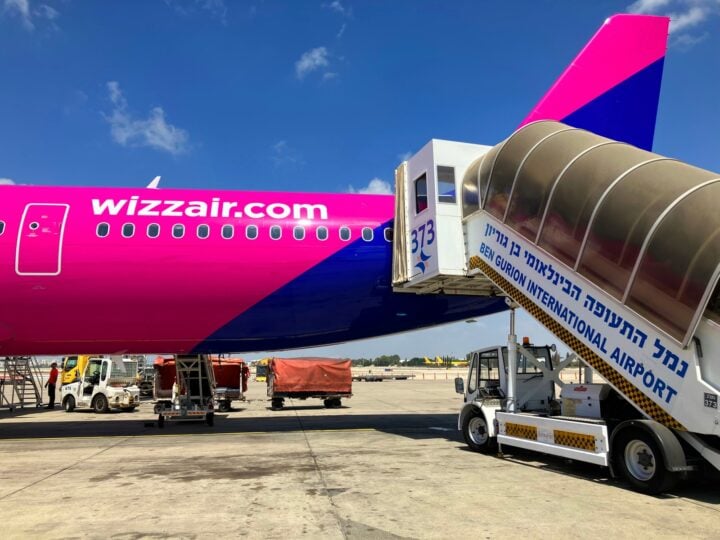Orit Strauss Raz had just finished the army and had been accepted to study law at Tel Aviv University. Like many young Israelis, she first planned a yearlong backpacking trek through Southeast Asia.
A friend who had been working with Burmese refugees suggested Strauss Raz come to volunteer along the Burma-Thailand border. “Teach English for a few months before you set out on your travels,” the friend said.
Strauss Raz took her up on the offer and wound up staying for a year, teaching English. When her time was up, she returned to Israel, got her law degree and eventually ended up at Herzog Fox Neeman, one of Israel’s three largest law firms.

But she missed doing something to help those in the greatest need.
“I always knew I’d go back to this world,” she tells ISRAEL21c, “dealing with migrants on the border. I wanted to pursue things I’m more passionate about.”
Five years ago, Stauss Raz quit her job and founded GivingWay, a startup that matches people looking to volunteer with nonprofit groups that desperately need the help.
In the 20 years since Strauss Raz first traveled, the business of placing volunteers has changed dramatically.
The travel industry used to be very destination-oriented, she explains, but has now shifted to more “immersive experiences, where you get to know a community better.”
Travelers are now incorporating short volunteering stints into their journeys, “whether that’s teaching English in a school in Uganda, working with sea turtle conservation in Costa Rica or helping out on an organic farm in Cambodia.”
While Strauss Raz applauds the move to “voluntourism,” she wanted to offer an alternative to placement agencies that sell volunteer packages for a pretty penny.
“These travel companies have placed themselves in the middle between the volunteers and the nonprofits, selling a volunteering package in Kenya or Bolivia like you’d buy a four-day package in Prague,” Strauss Raz explains.
“Most people don’t have $2,000 to pay an agent. It’s become like a rich man’s privilege to volunteer abroad.”
Moreover, she adds, these agents “often don’t understand the actual needs of local communities, and so you get these total mismatches where a nonprofit needs an English teacher and is sent a French-speaking kid from Belgium. So, the guy winds up painting a wall after paying a ton of money to the agent.”
Noting that “We’re in an Airbnb age, where marketplaces are kicking out middlemen across all kinds of industries,” she created GivingWay to democratize and disrupt this field.

4,000 vetted nonprofits
Strauss Raz teamed up with cofounders Alon Elish (now CTO) and veteran Israeli startup investor Gigi Levy-Weiss, and raised just over $2 million.
Launched in 2015, GivingWay now has 4,000 vetted nonprofits in 123 countries on its platform, connecting with thousands of volunteers worldwide.
Vetting is critical and involves three steps: making sure the nonprofit is legally registered with the appropriate local registrar, checking that the nonprofit really is a local grassroots organization and not a division of a multinational company, and ensuring the nonprofit is not an orphanage.
“Orphanage volunteering is a terrible problem,” Strauss Raz explains. “Tourists used to come to these orphanages – after all, there’s nothing cuter than kids. They wanted to help, to donate funds.”
But locals quickly capitalized on the demand by creating fictitious orphanages, “where the kids have at least one living family member, and in the worst cases, the orphanage convinces a rural family to give them a kid,” Strauss Raz says. “The volunteers were fueling this terrible industry, entirely unbeknownst to them.”
Although there are legitimate orphanages, GivingWay made the decision to ban orphanages from its platform.

Potential volunteers use the platform to search for a cause and location, apply to work with interesting organizations generated by the search, and finalize their plans. Participants usually pay a fee to the local nonprofit to cover housing, food and activities.
GivingWay takes a 5% cut of the transaction. Another 3% goes to the payment processor, leaving the remaining 92% for the nonprofit.
Why wouldn’t a nonprofit choose to bypass the platform entirely?
“Taking payment in remote locations is hard,” Strauss Raz says. “There are no ATMs nearby and travelers don’t want to carry cash. It’s much more convenient to use our tools than to save the 8%.”
Moreover, many of the nonprofits with which GivingWay works are tiny and don’t have the resources to create a website. With GivingWay, they get their own page at no upfront cost.
Volunteering online
One of the most surprising developments for the eight-person company, headquartered in the heart of Tel Aviv, was a demand for online volunteer gigs.
“In the digital age, if you have a couple of hours and a laptop, you can help a nonprofit with content writing for its website or with its social media,” Strauss Raz explains. “It took off like crazy in the last year.”
Today, a full 50 percent of GivingWay volunteers donate their time from home rather than traveling to some far-flung corner of the world. “Not everyone can get on a plane to go to Africa,”Strauss Raz notes.
And new partnership with Israeli digital freelancer platform Fiverr allows members to provide services to GivingWay nonprofits for free, rather than the usual Fiverr starting price of $5.
GivingWay’s volunteers are not exclusively young adults. “We see a lot of retirees and mid-lifers, who have traveled the world and have the means and knowhow to pass on skills,” Strauss Raz tells ISRAEL21c.
Remarkably, given Strauss Raz’s professional involvement in boosting voluntourism, the GivingWay cofounder and CEO only last year had the opportunity to travel back to where it all began, along the Thai-Burmese border. Sadly, she found refugees still in displaced persons camps after all this time.
GivingWay was recognized by Wired as one of the top 10 Israeli startups of 2019, and by Israeli President Reuven Rivlin with an inaugural Global Impact Award. The Global Impact Awards are a joint initiative of the Society for International Development Israel, Walla News and the Israeli social impact nonprofit organization OLAM.
For more information, click here

















